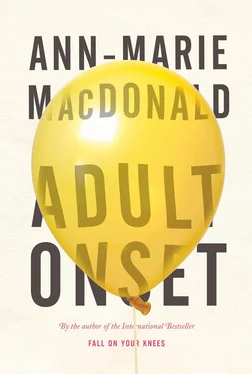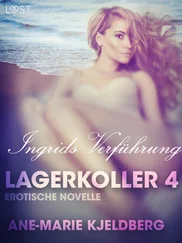Journey To Otherwhere
Kitty McRae had always played well alone. Not that she was disruptive or unpleasant to play with , it was just that since her mother’s death, when Kitty was still a baby, she had had to learn to amuse herself. She had never been much for toys, especially dolls — there had been one long ago, but she grew out of it and never missed it. Kitty McRae did not need toys because she had something infinitely better. She had her father.
And he had a very important job that required him to be on the move at a moment’s notice. Kitty had grown up travelling with him to the ends of the earth. There were many wonderful things about Dean McRae, but one of them was something people might not notice from the outside: he always made his daughter feel as though she were absolutely necessary.
Eleven is a powerful age. Kitty had mastered the logarithms that allowed her father to track winds and weather patterns; alerted him to shifts in the earth’s crust and the formation of tsunamis long before they swept ashore with obliterating force; enabled him to predict the path of fires and floods. She had seen many futures on his laptop, scenarios that played out over a millennium, merely by adjusting one of a multitude of factors — the level of plankton in the St. Lawrence River, a drop in the population of midges in the Great Rift Valley — watching as deserts swept continents, and jungles squeezed whole cities in their coils. But there was nothing “virtual” about the helicopters in which she had flown, palms pressed to the glass, grazing houses submerged to their rooftops or rendered skeletal with flames; over land-slid highways, buckled bridges. And each time, the fires subsided, the waters retreated and, step by step, life went back to normal. Her father had even credited her as a research assistant on his latest submission to the Journal of Geo-Engineering . “Do it your way, Kit-Kat”—whether it was a math problem or an ice cream sundae. Dean McRae was a Disaster Relief Expert, and Kitty couldn’t think of anything she would rather be when she grew up.
Now that she was almost grown up, Kitty could see the situation clearly: her father, being the kindest of people, had always made her feel necessary even when she must so often have been in the way. This gave her a mighty, not entirely comfortable feeling in her chest, as though her heart were hot and outsized. She identified this as a surplus of love, a form of energy that could be harnessed. She was eleven. She was in her prime, ready now to be really useful.
“Kitty,” he had said, “would you mind coming with me into the study, I’d like to have a word.”
The study was her favourite room in the world. In contrast to the hi-tech tools of her father’s trade, this room contained objects that were powered entirely by history. There were gyroscopes and sextants that dated back to Columbus, and lethal-looking mathematical instruments that had belonged to her grandfather. On the wall over the desk hung an antique map. According to the cartographer of the time, the world consisted of a thin strip of Europe, a dollop of Africa, a blob of Asia and a sinister rind of Terra Incognita . At opposite corners, puff-cheeked Zephyrs blew the winds across the globe, while a tentacled sea monster bobbed amid the waves and fire-breathing dragons lurked at the uncharted edges. Presiding over it all was a big roll-top desk complete with pigeonholes that resembled a nesting wall for ocean birds, each harbouring a treasure: the tooth of an ichthyosaurus, a two-thousand-year-old lotus seed that her father meant to plant one of these days, a twenty-million-year-old whorl in stone called a trilobite, a vial of volcanic ash from the latest eruption in Iceland … The desk top was perpetually awash in papers, for her father said he still thought best with a pen in his hand.
On the one clear corner of her father’s desk stood a photograph in an oval frame. It was the only picture they had of Kitty’s mother, and for Kitty it was the sole image, for she had no memory of her mother’s face. Asha Singh. So pretty, so lively looking; if it were a yearbook photo, the caption would be, Least likely to die young . There was something wistful in her mother’s smile. It almost seemed to say, I’m sorry .
Kitty was good at math but, try as she might, could not keep straight just how old she had been when her mother died. She did not like to ask her father because it caused him pain … he seemed to shrink and Kitty could almost see the energy departing from him. She feared that every time she brought up the subject of her mother, he lost a little more of whatever it is that keeps a person alive. And she could not shake an uncomfortable feeling that it was up to her to keep him alive. Why had she not simply written the information down when she had the chance? Worse than embarrassing, it was weird, for who in their right mind forgets when their own mother died? She had asked Ravi, but he too seemed uncertain. He said, “That is a question for your father, Kitty.”
Ravi had spoken only Hindi and was barely more than a child himself when Dean McRae hired him off the street in Lucknow and sponsored him. Ravi was now more Canadian than Sir John A. Macdonald, a fan of the deep Montreal winters, alchemist of spices with which he seared away Kitty’s coughs and colds. In the early days he would oil her hair and braid it, and while she put a stop to that when she turned nine, to this day it was thanks to him that, while Kitty refused to be seen in a dress, she did consent to wear a sari at Christmas. His strong, lined hands, the colour of smooth wood, were synonymous with safety, and next to her father, Kitty loved Ravi most in the world.
Over the fireplace hung a gilt-framed round mirror like a big eye, which reflected the whole room as though through the wrong end of a telescope. It had been salvaged from the wreck of her great-great-grandfather’s ship and was speckled with age where the mercury had begun to eat through. Kitty did not like to look in it because it made her eyes go funny, as though flakes of silver were drifting down the glass like snow in a paperweight. It was a symptom of the “atypical idiopathic migraines” the doctor said were behind her “spells.” They didn’t hurt, which was why they were not “typical.” And “idiopathic” did not mean she was an idiot, “It just means you were born with them,” said her father. Kitty did not think much of the diagnosis — it was a grown-up-sounding name for something grown-ups did not understand. She stole a look at herself now, however, small and distant where she stood on the carpet, ready to receive her “marching orders.”
This room and everything in it would be hers one day, but the carpet already was. It had been woven for her by a Bedouin elder in gratitude to her father for putting out a fire that had raged for months, fed by a sea of oil beneath the desert. Every handwoven carpet is special, but this one had a band of scarlet snaking through in the shape of her initial: K .
Their adventures always started in the same way, with Kitty standing at attention on the carpet and her father relaxed in the leather armchair. So it was with a pleasant tingle of anticipation that she saw him settle into it. And a modicum of surprise when he said, “Have a seat, Kitty.”
She hesitated, then sat down cross-legged on the carpet, brushing a thatch of hair from her eyes. Her hair might be described as the physical manifestation of her brain’s energy field: growing in all directions, fractal and increasing in complexity every day — why bother brushing it? “That’s your story and you’re sticking to it,” Ravi always said. He had given up trying to make her brush her hair, but he did insist upon teeth and she could see his point. Ravi had looked after her as long as she could remember, and it was thanks to him that she could speak a little and understand a lot of her mother’s first language. She enjoyed the response she got when she introduced him as “my manny”; and of late there had been plenty of opportunity, for a parade of girls her age had been produced as though via some marketing magic by her “Aunt” Fiona. A partner at the public relations firm Tullimore-Spinx, Fiona Tullimore wasn’t really Kitty’s aunt but her father’s girlfriend, and it was in both capacities that the wonderful woman brimmed with plans to “improve” Kitty’s life. But Kitty’s life was already perfect. She had her father, she had Ravi, and she had her secret.
Читать дальше












